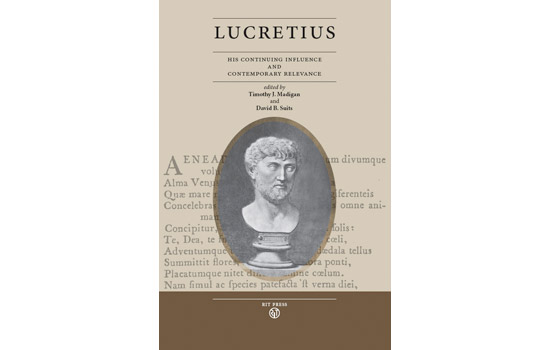RIT Publishes Essays on Roman Poet and Philosopher Lucretius
A thinking man’s influence from the past is still relevant today
Lucretius (c. 99 B.C.-c. 55 B.C.), author of De Rerum Natura, was a Roman poet and philosopher who explained and expounded the beliefs of the Greek philosopher Epicurus—advocating a happy, tranquil life, free from mental turmoil and anguish. He believed that the universe was infinite and eternal, and that things and events were collections and interactions of atoms moving in empty space.
According to David B. Suits, professor of philosophy at Rochester Institute of Technology, and Timothy J. Madigan, assistant professor of philosophy at St. John Fisher College, co-editors of Lucretius: His Continuing Influence and Contemporary Relevance, the implications of the Epicurean/Lucretian view are profound: death is the end of body and soul, gods don’t reward or punish humans, and a happy life is a simple life with friends.
Published by RIT Press, the book features essays that deal with Lucretius’s critique of religion, attitudes about death, and his influences on later thinkers such as Isaac Newton and Alfred Tennyson. The book’s name is the title of the 2009 conference on Lucretius held at St. John Fisher College, when many of the ideas in these essays were first presented.
The softcover edition of Lucretius: His Continuing Influence and Contemporary Relevance is available for purchase for $24.99 at http://carypress.rit.edu or by calling RIT’s Cary Graphic Arts Press at 585-475-6766.
Note: RIT Cary Graphic Arts Press and its imprint, RIT Press, are scholarly publishing enterprises at Rochester Institute of Technology. The Press is associated with the Melbert B. Cary Jr. Graphic Arts Collection, one of the country’s premier libraries on the history and practice of printing.










